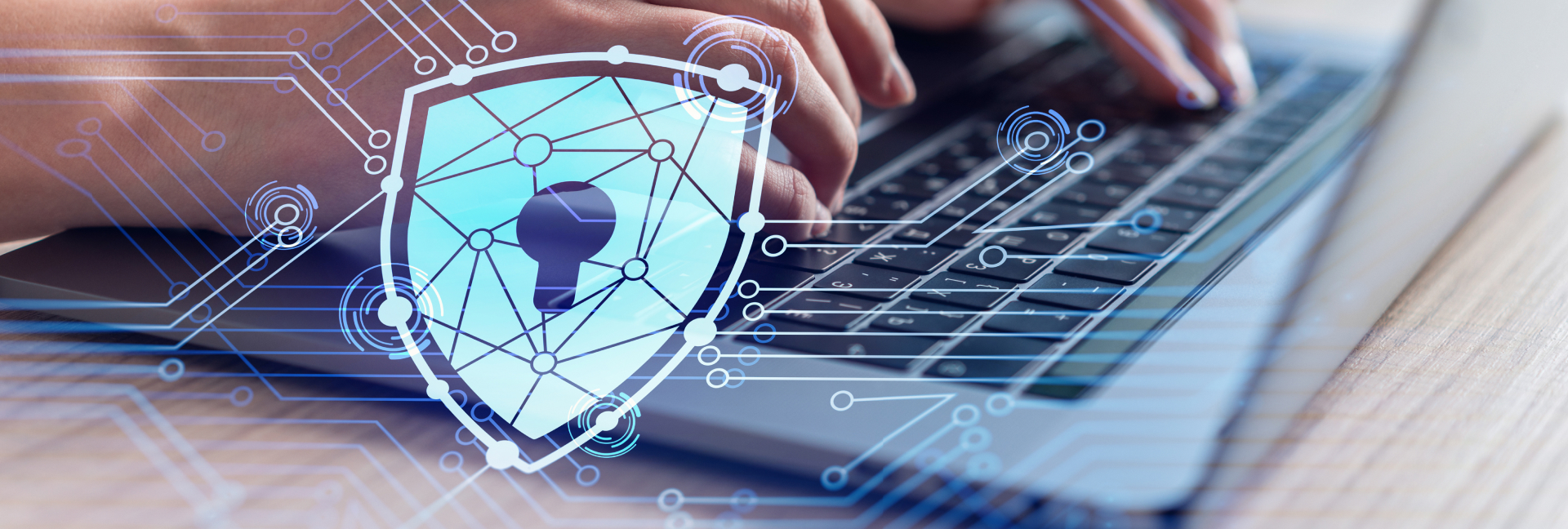
 Mar 1 2022
Mar 1 2022
There’s no doubt that the internet has made us all more connected. Still, the digital age presents new types of risks as more of our daily lives—our interactions, conversations, and how we work, shop, and access information—now take place online.
But even the first step—creating an account or profile—requires disclosing personal information, like your name, date of birth, gender, location, and other identifiable information. And despite the growth of personal data privacy controls, the risk of cybersecurity issues Iike hacking, phishing, identity theft, and spam still remain.
To prevent these, it’s important to practice cyber safety. This means keeping your digital footprint and online profiles secure from unauthorized access and your interactions safe from the risk of unlawful tracking and manipulation. The good news is there are lots of quick and easy cyber safety tips that you can practice to stay safe online. Keep reading to learn more:
You need a password for every account you create—it’s the most basic way of securing your personal information and activity. Unfortunately, we are often our most common pitfall to using passwords correctly. Many people use a single password for all their accounts, so it’s easy to remember. But this makes all of your accounts vulnerable even from just a single breach.
To avoid this, make sure to create a unique password for each account. Try to use at least 12 characters with a combination of upper- and lower-case letters, numbers, and symbols.
Remember that since most passwords are the names of pets or birthdays of family members, these can still be easy to guess once attackers have gathered some information about you. For better cyber safety, use a passphrase instead: a combination of four or more random words with a minimum of 15 characters.
No password should ever stay the same across websites and platforms. Old passwords often have fewer characters, making them easier to guess. In some instances, the information they’re based on—like your first pet’s name or the name of the street you grew up on—can become public as more information about you is revealed online. Practice cyber safety by regularly reviewing and updating your passwords according to the latest security standards.
Be mindful of where you’re logging in from—the device you’re using and the Wi-Fi network you’re on. Other than outright guessing your password using a handful of combinations, sophisticated cybercriminals can also obtain your personal information via devices and networks you’ve previously logged on from.
For optimal cyber safety, avoid logging into particularly sensitive accounts, like online banking, on public computers and networks. Similarly, pay attention to the websites you visit and steer clear of any site that asks you to send your account information via email or text.
One of the latest standards in cyber safety is multi-factor authentication for account logins. Multi-factor authentication works by prompting you to enter a code sent to a verified device. This allows a site to confirm that the login attempt is legitimate and secure, and from a trusted device.
It’s an added layer of cybersecurity that keeps attackers out, even if they’ve managed to get ahold of your password. In addition, when multi-factor authentication is enabled, most sites will also notify you of the login attempt, making it easier to confirm and keep track of secure logins and report unauthorized access.
Do your own privacy check-up often. It’s not enough that you keep your passwords secure; you also need to check what others can see about you, especially on social media platforms.
A major part of creating a profile is personalizing your experience. For example, social media platforms and other websites often invite users to share their location, interests, birth date, and other personal information. And while these are great for staying in touch with people we know and trust, these also put you at risk of cybersecurity threats, like hacking and phishing.
Don’t wait for a data breach or other potential problems. Instead, practice cyber safety by reviewing your privacy settings, such as who can see what you’re posting and what personal information is visible and tracked. Set your default settings to maximum privacy, so posts and other information are visible only to people you know—if you must share them at all.
More than controlling what others see about you on social media platforms, share responsibly to start. Even with maximum privacy settings, it’s impossible to be 100% certain that only the people you trust can see your online activity.
Keep in mind these cyber safety tips when interacting online:
Did you know that choosing the right internet provider plays a major role in cyber safety? How you connect to the internet matters just as much as your online activities.
By choosing a privacy-focused internet provider like Comwave, you can learn more about essential cyber safety tips at home, like keeping your Wi-Fi network and internet connection secure. From setting up parental controls, to keeping unauthorized devices from logging into your home network, Comwave can help the entire family browse safely and maintain data privacy where it matters most.
Got any privacy and cyber safety tips to share, or want to learn more about securing your home network and browsing activity at home? Contact Comwave to activate Wi-Fi network controls on your modem and maintain cyber safety.

Comwave is Canada’s largest independent communications company, offering home internet, TV and phone services at some of the best prices in Canada.
1-866-542-6694© 2022 Comwave Networks Inc. All rights reserved.
911 has certain limitations versus traditional E-911. Details at www.comwave.net/legal



First, let us know where you live so we can make sure that we can provide service in your area.